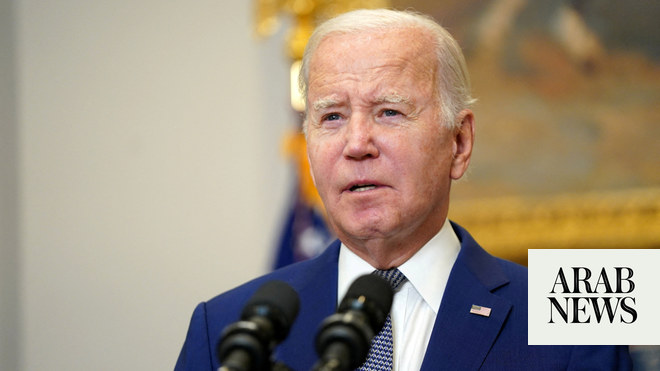
Pledges to review austerity budget as an immediate compensatory measure
KABUL: In a live address to the nation on Tuesday, President Ashraf Ghani assured Afghans that Washington’s decision to cut a significant portion of its aid to the country would have no impact on war-torn Afghanistan.
“I can assure you that the reduction of USA aid will have a direct impact on essential parts of the government and key sectors (defense and security) … but, it won’t have any impact on the lives of the people,” he said.
It follows the decision by the US to cut $1 billion in aid to Afghanistan on Monday, which Washington blamed on the failure of Ghani and his main political rival, Abdullah Abdullah, to agree on a unity government for talks with the Taliban.
A further $1 billion could be cut in 2021, the US secretary of state, Mike Pompeo, said after a surprise visit to Kabul on Monday failed to persuade the two men to agree on a deal.
However, Pompeo suggested that the aid could be restored if they changed their minds.
In a sign that he was rejecting the deal, Ghani said he would “review all aspects of austerity budget as soon as possible” as an immediate compensatory measure.
He added that he was keen on forming an inclusive government and had offered “various positions in the government to Abdullah and his supporters” in recent weeks.
Ghani’s government relies on billions of annual assistance from the US and its allies, for bankrolling both its security forces and its development budget.
Unlike Ghani, Abdullah called for the continuation of US aid, saying that it was extremely vital for Afghanistan.
“While we thank and appreciate the USA for its aid for the Afghan people and its efforts for an intra-Afghan dialogue aimed at the advancement of a just and permanent peace, we would like to emphasize that the continuation of this cooperation for the achievement of national interests and the restoration of peace has high importance for our people,” Abdullah said in a statement on Tuesday.
Ghani and Abdullah shared power in a national unity government until a few weeks ago under a US-brokered deal after the fraudulent polls of 2014.
Last month, Ghani declared himself the winner of the disputed Sept. 2019 elections — a claim rejected by Abdullah who announced the formation of a parallel government on March 9, on the same day Ghani was sworn in into power.
It followed concerted attempts by US envoy for Afghanistan Zalmay Khalilzad to avert the political crisis in the country.
Pompeo sought to persuade the two leaders to form a team to hold talks with the Taliban, who had signed a peace deal with Khalilzad on Feb. 29 to end a decades-old war in Afghanistan and the most protracted conflict in US history.
“The United States is disappointed in them and what their conduct means for Afghanistan and our shared interests,” Pompeo said in a sharply written statement after his departure from Kabul.
“Their failure has harmed US-Afghan relations and, sadly, dishonors those Afghan, Americans, and coalition partners who have sacrificed their lives and treasure in the struggle to build a new future for this country,” he added.
Pompeo travelled to Doha, Qatar, where he held a meeting with the Taliban’s deputy leader, Mullah Abdul Ghani Baradar.
Zabihullah Mujahid, a spokesman for the Taliban, said the two “stressed that the rigid implementation of the agreement would pave the way for intra-Afghan negotiations along with enduring peace and cease-fire, including a future Islamic government according to the agreement.”
He added that Pompeo had assured Mullah Baradar that “US forces’ withdrawal will continue as per the declared timetable.”
Meanwhile, experts said Washington’s threat to reduce aid could further weaken the government.
Wahed Faqiri, an Afghan analyst, said that, if implemented, the aid cut could harm the Afghan economy and affect ties between Washington and Kabul, which have had uneasy relations in the past year.
“The Afghan economy will suffer…The relationship between Kabul and Washington will further diverge,” he told Arab News, adding that the political crisis in Kabul “is real and dangerous.” He said that, as a result, “the US was warming up to the Taliban.”
Tabish Forugh, another analyst, said Ghani and Abdullah’s continued failure to agree on a unity government would prompt some in the leadership of the Afghan security forces “to separate their way from the political leadership of Kabul,” resulting in Washington’s decision to cut aid.
“There is no way Afghanistan will be able to fill the gap…in the budget given its dysfunctional, foreign aid-dependent, failed economy,” he told Arab News.
“I believe this is a strategic blunder in the US-Afghanistan partnership. The political implications of this act will be more destructive than its immediate economic downsides.”












